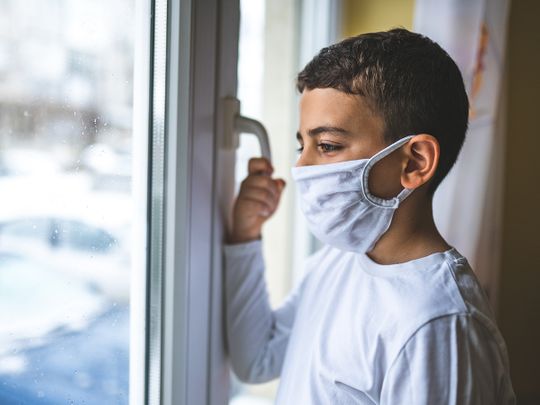COVID-19 and asthma
[ad_1]

Following the outbreak of the coronavirus pandemic, the Pan American Health Organisation (PAHO) referred to reports in the United States that said approximately 25 per cent of young adults hospitalised with COVID-19 had a history of asthma and that 40 per cent of children admitted had some form of lung disease.
Despite these reports, the PAHO said that the evidence was inconclusive. “There is ongoing debate on whether or not individuals with moderate to severe asthma are at risk of developing more severe disease from COVID-19.”
According the PAHO, one of the problems with asthma during the pandemic is differentiating the symptoms from those associated with the coronavirus. “The greatest challenge in managing asthma in the time of COVID-19 is distinguishing the signs and symptoms of an asthma exacerbation from those of COVID-19, which include dry cough and difficulty breathing. Furthermore, people could concurrently have COVID-19 and an asthma exacerbation triggered by COVID-19.”
Dr Bassam Mahboub, Head of Respiratory Department at Rashid Hospital, DHA, says that although there can be comparisons between the two, there are also differences. “There are similarities such as coughs, which can appear as symptoms in both asthma and COVID-19, but a fever is a symptom that is associated with the coronavirus and not with asthma,” he says.
Mayo Clinic say that people can suffer from different COVID-19 symptoms and that some individuals can be asymptomatic.
“Coronavirus disease 2019 (COVID-19) symptoms can vary widely. Some people have no symptoms at all, while others become so sick that they eventually need mechanical assistance to breathe.”
Varying risk levels
Asthma UK is keen to stress that the severity of an asthmatic’s reaction to COVID-19 can vary significantly, as with people who don’t suffer from the lung disease. “Everyone is different, and our risk level from COVID-19 is also different, as well as what level of risk we are prepared to accept in daily life.
“There isn’t any evidence to suggest that having asthma makes you more likely to catch coronavirus. In terms of serious illness from coronavirus, people with severe asthma and asthma that is not well controlled may be at higher risk.”
Dr Mahboub advises asthmatics to continue to take their prescribed medication during the pandemic and to ensure they are vaccinated against the flu.
“If the patient’s asthma is under control and they are taking their medication, from what we know, with controlled asthmatics there is no significant increase in the risk of becoming seriously sick if they contract COVID-19.
“The most important pieces of advice are that asthmatics take their medication and ensure they are vaccinated for the flu. Asthmatics should control their disease and not just rely on salbutamol, which is for emergencies.”
Dr Mahboub also says that people with asthma should avoid feelings of stress and anxiety over their condition. “Research has shown that stress can decrease immunity so people under stress are more likely to be more susceptible to infections, including viral infections.”
Living with masks
Asthma UK says that even people with severe asthma should be able to manage wearing a mask, although some asthmatics have complained that masks can hinder their breathing.
“Some people with asthma tell us that face coverings can make breathing feel more difficult, which might be uncomfortable. It’s a good idea to try wearing a face covering at home, or on a short walk around the block first. It might not feel comfortable straight away, so give it a chance.”
Experts suggest trying different types of masks to find what suits people best and feels most comfortable. “A true allergy to mask materials or face coverings is extremely rare but many people can feel uncomfortable wearing a mask. There is no evidence that a mask decreases the amount of oxygen people breathe or increases their CO2. It is psychological so asthmatics can wear masks just as everybody else,” says Dr Mahboub.
He says that individuals who suffer from asthma, as with all residents, should follow the recommended COVID-19 safety precautions from the UAE government as well as continue to ensure they take their medication. “My advice is that asthmatics should take precautions against the coronavirus like everybody else but they should also take their medication because, if they take their medication regularly then their asthma will be controlled and their risk of becoming sick from the coronavirus will be similar to the normal population but if it is not controlled, then this risk can be higher.”
[ad_2]
Source link
